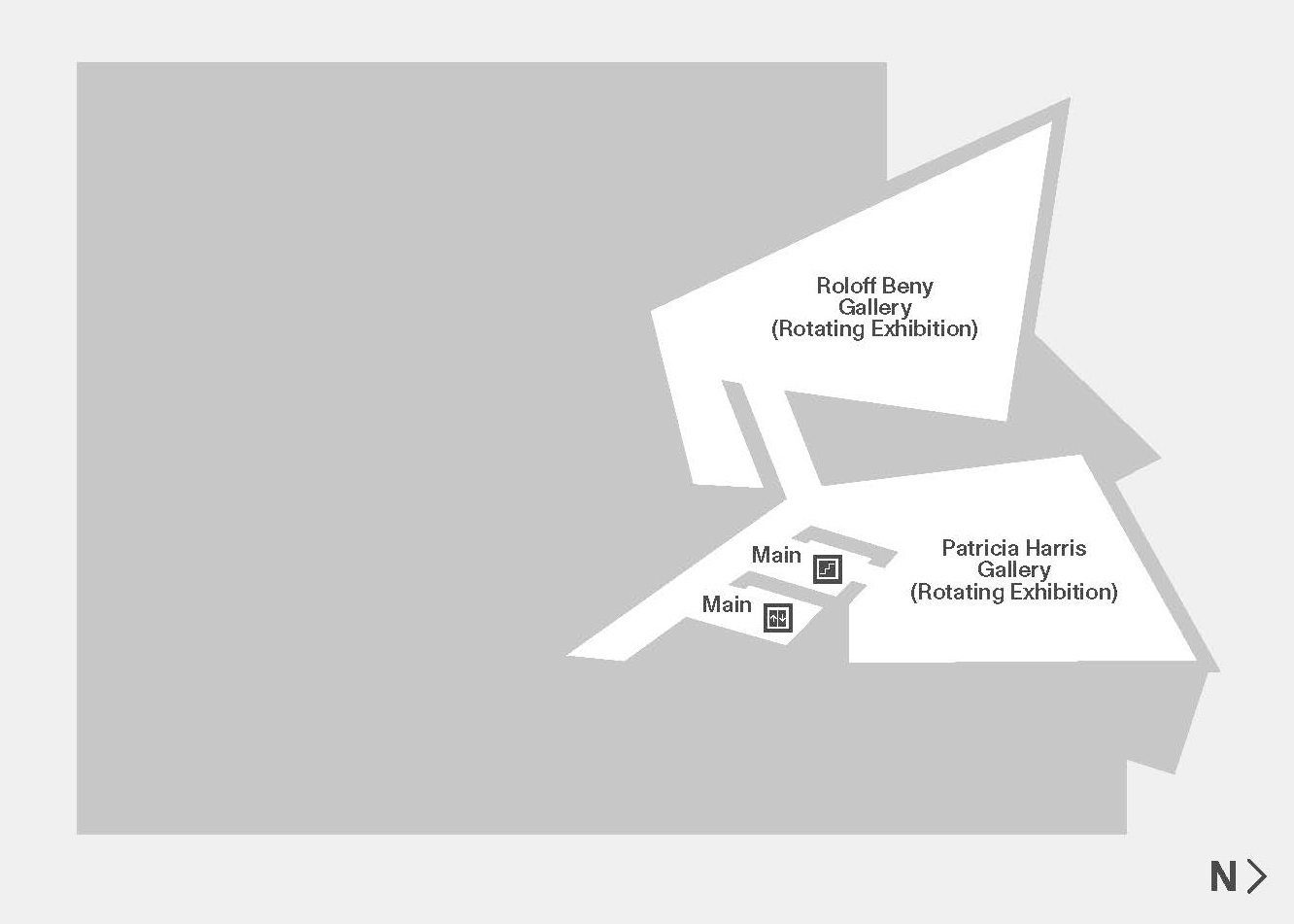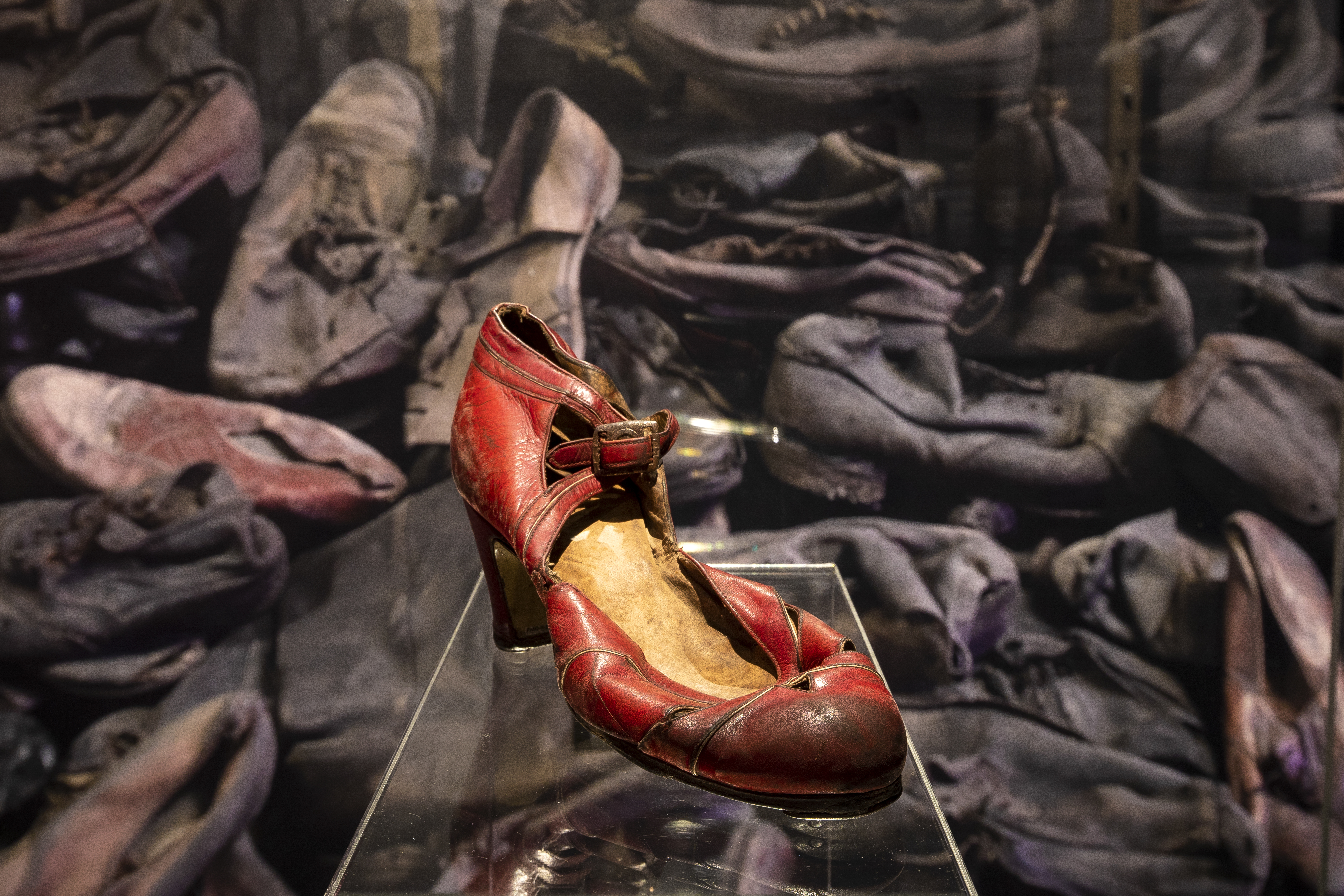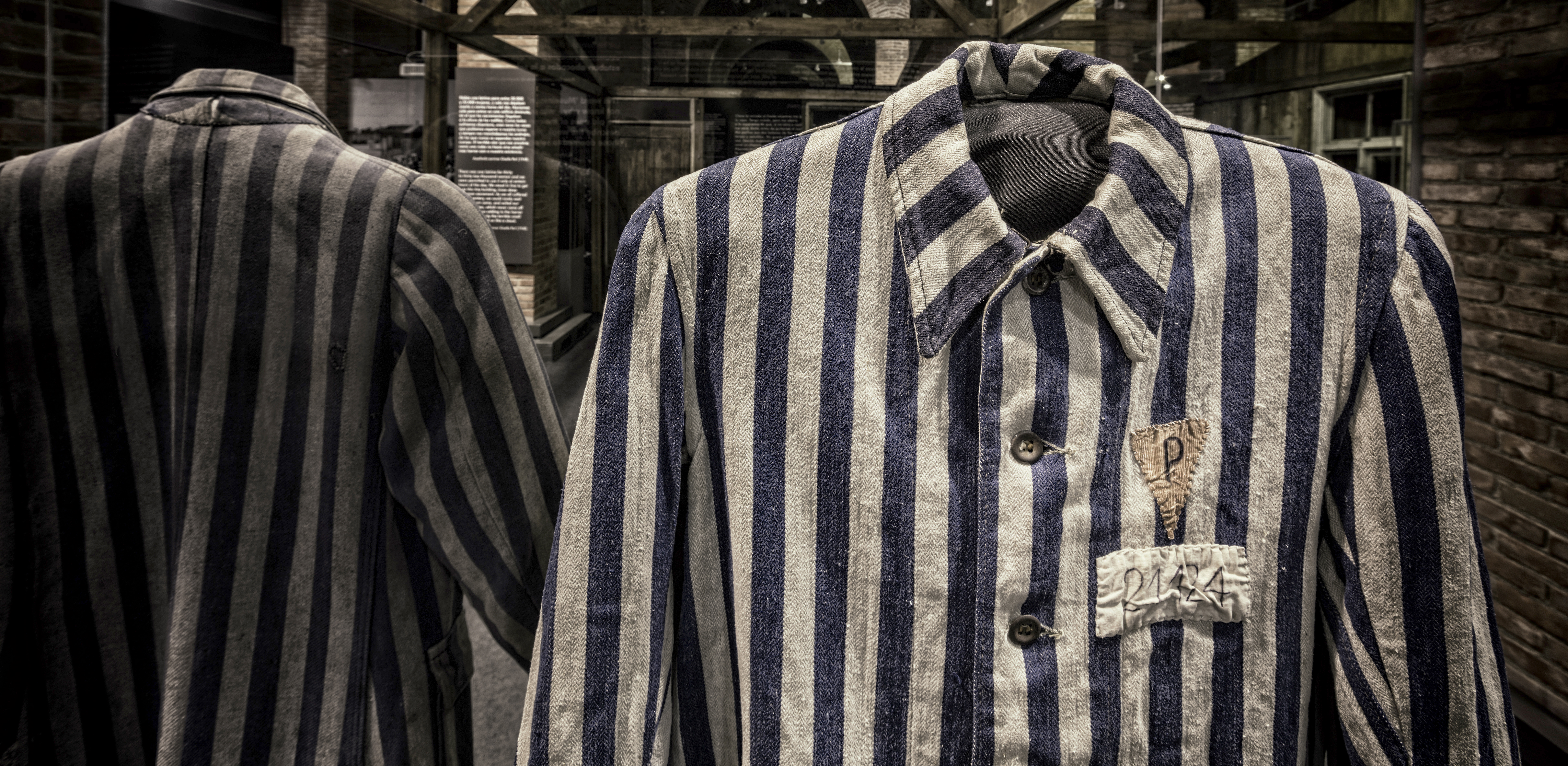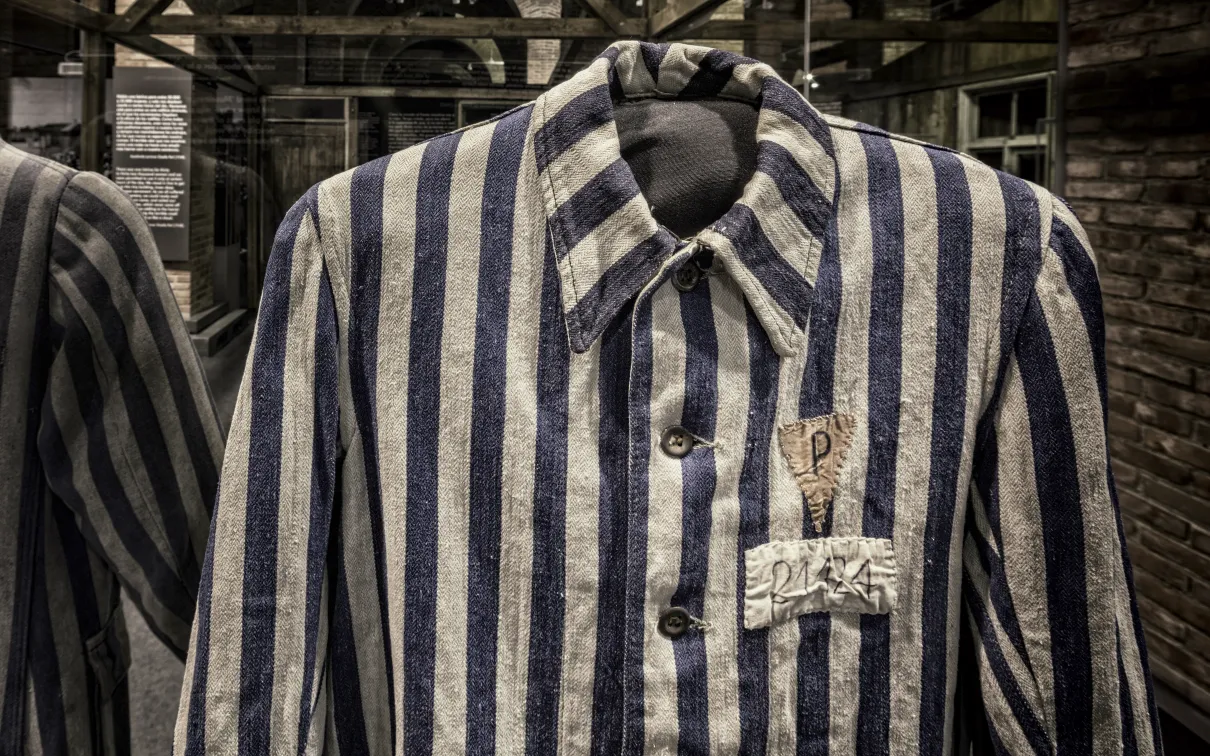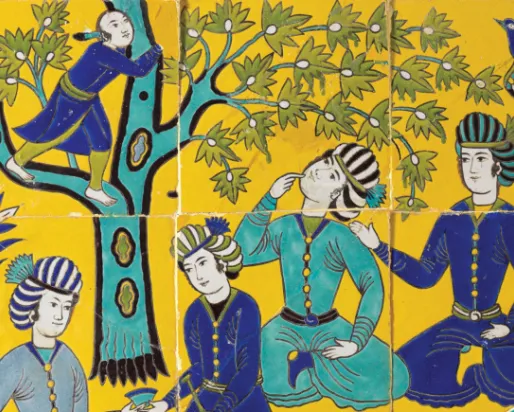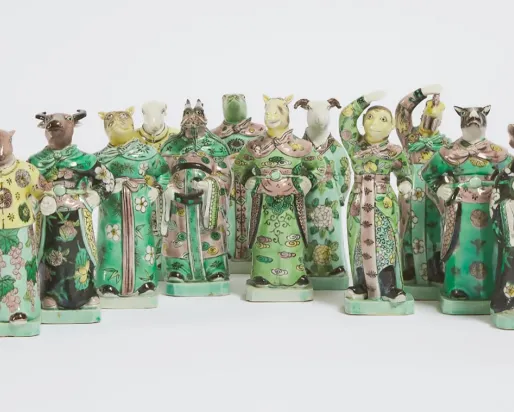Auschwitz.
Not long ago. Not far away.
Date
Location
Admission
Audience
About
KEEP THEIR STORIES FROM FADING
Final Weeks! Exhibition Closing Soon.
Whether visiting solo or with friends and family, a visit to Auschwitz. Not long ago. Not far away. helps us to understand how Auschwitz — and the Holocaust — happened. Be sure to visit this unprecedented exhibition before it leaves Canada.
Created by Nazi Germany, the most significant site of the Holocaust, Auschwitz, was not a single entity. It gradually became a system of camps that combined two functions: a concentration camp and a killing centre in which some 1 million Jews — and tens of thousands of others, including Poles, Romani people, and Soviet POWs — were detained and murdered in a systematic and industrialized fashion. This powerful exhibition, which arrived in Toronto in January 2025 ahead of the 80th anniversary of the liberation of Auschwitz, examines its history and legacy and explores the dual identity of the Auschwitz camp as a physical setting — the largest documented mass murder site in human history — and as a symbol of the borderless manifestation of hatred and human atrocity.
More copy
The internationally touring exhibition, created by Musealia, co-produced by the Auschwitz-Birkenau Memorial and Museum in Poland, and developed with an esteemed international panel of curators and historians, is one of the most comprehensive exhibitions ever presented on the subject, and ROM is the only Canadian stop on its international tour.
Survivor testimonials, historical documentation, and first-hand accounts by emancipating forces create a powerful connection to the exhibition's more than 500 original objects — many of which have never been seen before in Canada — on loan from the Auschwitz Memorial and more than 20 other major institutions and private collections around the world. Additionally, physical camp objects and archival records provide a contextual framework for the political and social landscape in Europe before the Auschwitz camp was created, the complex's day-to-day environment, and its continued legacy, raising awareness of the intellectual ingredients and human machinations at work in realizing such systemic barbarism.
Auschwitz. Not long ago. Not far away. underscores a critical need to understand the underlying conditions that allowed the Holocaust to happen. By reflecting on the past, visitors are invited to consider their role in creating a more inclusive and tolerant society.
Experiencing the Exhibition
Auschwitz. Not long ago. Not far away. is not recommended for children under the age of 12. The history of the Auschwitz camp is challenging and care has been taken to ensure that there are no gratuitous depictions of violence, however some of the content is graphic, which some visitors may find distressing. As a result, warning advisories have been placed near particularly difficult content. Every effort has been made to consider the emotional impact this story can have on our visitors, so that they may safely explore this history, seek to understand it better, and make meaning for themselves.
Programming and Education
The exhibition is augmented with an extensive series of programs designed to deepen our understanding of the Holocaust, identify bias in all its forms, and foster greater social cohesion — including Ontario Holocaust education curriculum-aligned school visits and experiences, anti-bias learning installations through the Museum, and public programs featuring internationally recognized Holocaust experts.
To further support access and opportunities for enhanced education about the significance of the Holocaust, the Museum offers free admission to Auschwitz. Not long ago. Not far away. for Grade 6-12 students participating in organized school visits from Ontario-based schools. Exhibition-related teacher training materials, as well as online school learning resources will also be offered.
Sponsors
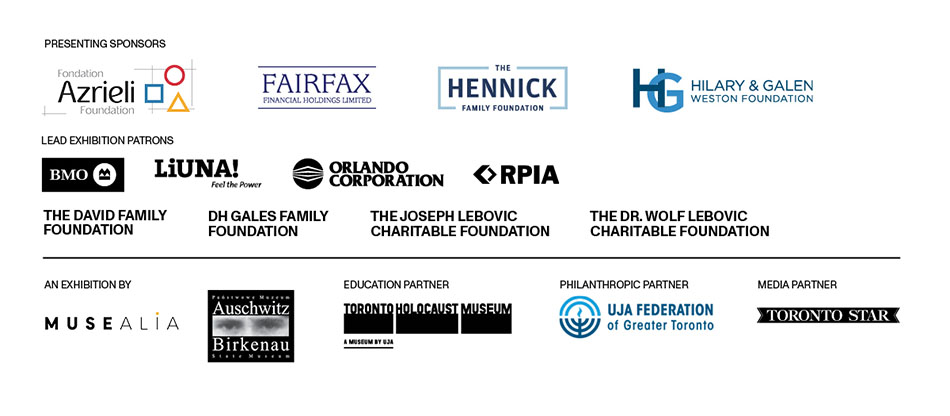
Exhibition Patrons: Colliers International Group; Wendy & Elliott Eisen and Family; FirstService Corporation; Fogler, Rubinoff LLP; Freeman Family; Lillian & Norman Glowinsky and Family; Ira Gluskin and Maxine Granovsky-Gluskin; Goldman Sachs Canada Inc.; Louis and Garry Greenbaum and their Families in memory of Morris and Helen Greenbaum z'l; Brown and Lindenberg Families; Metropia; Power Corporation of Canada; The Rechtsman & Silver Families; Rochelle Reichert & Henry Wolfond; The Edward and Suzanne Rogers Foundation; Shael Rosenbaum; The Schulich Foundation; The Gerald Schwartz & Heather Reisman Foundation; Isadore and Rosalie Sharp; Larry and Judy Tanenbaum Family Foundation; Temerty Foundation; Torys LLP; The Jack Weinbaum Family Foundation; Ted and Annette Wine & Family; Anonymous (2).
Community Partners: Andrea and Michael Barrack; Judy Bronfman Bernick and Howard Bernick; Sari and David Binder; Rocco and Irene Pantalone, Penny Offman, Harry and Dora Kichler and Simon and Jan Zucker; Paul and Tanya Braun; Helen Burstyn; CIBC; The Ricky and Peter Cohen Family Foundation, Moez and Marissa Kassam Foundation, The Levy Family Foundation, Albert Sliwin and Family; Myrna Daniels; Kiki and Ian Delaney; Susan, Perry, Taylor and Nicholas Dellelce; Focus Wealth Management and Hazelview Investments; George and Kitty Grossman; Cory Hawtin; Mark Hilson and Kathleen O'Keefe; Pierre Lassonde Family Foundation; Geoffrey S. Belsher; Gregory S.Belton C.M., C.V.O, LL.D; Wayne Squibb; Rosamond Ivey; Pamela Pastoll Jacobson, Ian Jacobson and Families; Khrom Capital; KingSett Capital; Northbridge Capital Inc.; Andrew Pastor and Nicholas Telemaque; RBC Foundation; Heather Regent Family Charitable Foundation; Jill Reitman and Joel Reitman, C.M.; RioCan REIT; Larry Rosen & Susan Jackson; Robert Rubinoff; The Shen Family Charitable Foundation; Ken Shi & Yvonne Lou; Elsa Stringer and Shephen Stark; Fran and Ed Sonshine; TorQuest Partners; The Venn-Mitchell Family; Bunny Adler Vyner and Brian Vyner honouring Gabriella Adler, an Auschwitz survivor, born in 1926 - ; Anonymous.
This exhibition is generously supported by the Royal Exhibitions Circle.
Community Ambassadors: Canadian Centre for Diversity and Inclusion; Canadian Race Relations Foundation.
